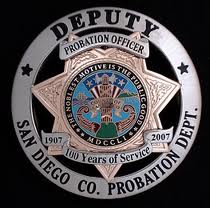 During a driving under the influence sentencing hearing, the court may offer to put the defendant on probation. (The defendant does not have to agree to probation; however, it lessens the amount of time spent in jail if any time has to be served at all.)
During a driving under the influence sentencing hearing, the court may offer to put the defendant on probation. (The defendant does not have to agree to probation; however, it lessens the amount of time spent in jail if any time has to be served at all.)
The judge may impose a sentence but then suspend the execution of that sentence. For instance, the defendant may be sentenced to six months in jail, but the execution of that sentence is suspended until ordered. In those cases, if the defendant violates probation and it is revoked, the judge has authority to deny reinstating probation and execute the six month sentence. Thus the defendant will be required to serve out the six months in jail. However, if the probationer successfully completes probation, the judge will not order the sentence to be executed and he or she will not have to serve any of that time in jail.
In misdemeanor DUI cases, most commonly the judge suspends the imposition of sentence, putting the defendant on probation without giving an indicated sentence. By doing this, if the probationer violates the terms of probation, the judge can ultimately sentence him or her to the maximum jail sentence allowed for that particular crime. In misdemeanor drunk driving cases, the maximum jail sentence imposed for a first DUI is 6 months. For subsequent misdemeanor DUI cases, the maximum jail sentence is one year. (Note, a fourth drunk driving conviction is considered a felony and felony DUI sentencing rules apply.)
Most San Diego judges sentence defendants to probation with standard terms and conditions. These terms and conditions include: 1.) Violate no laws; 2.) Do not drive with a measurable amount of alcohol/drugs in the blood; 3.) Submit to any test at the request of a peace officer for detection of alcohol/drugs in blood; 4.) Violate no laws regarding driving a motor vehicle while under the influence or in the possession of alcohol, drugs, or both; and, 5.) Do not drive without a valid driver’s license and liability insurance.
In addition, the defendant often has to complete an alcohol program, attend a MADD panel class, and pay fines/fees. Failure to do any of the above can result in a probation violation. The court, on its own motion, may revoke probation. If the probationer is out of custody, the court usually sends a notice with a time and date to appear. At that hearing, the probationer may not contest the probation violation and the judge will immediately address the violation. If the violation is contested, a date for a probation revocation hearing is set.
If the probationer does not show up for the initial prerevocation hearing, the court will issue a bench warrant for the probationer’s arrest. The warrant will remain until addressed. If the court preliminarily revoked probation, the probation term is tolled, meaning it’s not running; therefore, the probationer should go to court as soon as possible.
The above blog article is by no means all-inclusive and is not legal advice. Laws may change and may not apply to your case. For the latest information or to get legal advice, speak to a DUI attorney in your area.
If you need help getting your drunk driving probation violation warrant recalled, contact The Law Offices of Susan L. Hartman immediately. We offer a convenient phone consultation and you can start getting your probation situation handled today. Call us at 619-260-1122 or use the “Contact Us” form on this page.
 San Diego DUI Lawyers Blog
San Diego DUI Lawyers Blog

